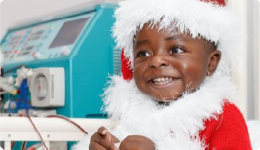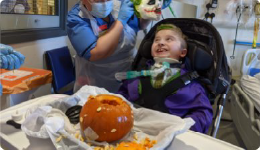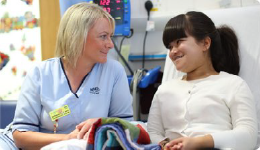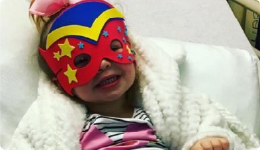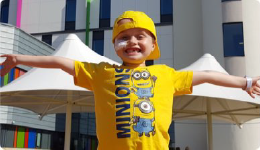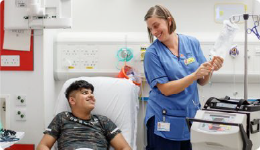Visit from Your Health Visitor
Your Health Visitor might visit you when your baby is 16 weeks old. You can find out more on Happy Healthy Tots.
16 Week Immunisations
Now is the time for your baby's next dose of immunisations. It is vital that your child receives protection against significant illnesses.
Remember to take your red book with you to the appointment.
Your child will receive their next dose of the following vaccines:
- The Six-in-one vaccine helps protect your baby against diphtheria, tetanus, pertussis (whooping cough), polio, Haemophilus influenzae type b (Hib) and hepatitis B (HepB).
- Pneumococcal helps to protect your baby against pneumococcal disease.
The immunisation pages of NHS Inform includes information on when and why you should immunise your child, and what to expect after immunisation.
Public Health Scotland have produced a Protect your child against serious diseases guide. This booklet is provided by your Health Visitor within the first two weeks of your baby being born and will help you over the next five years of your child’s own immunisation journey. This is also available in other languages.


 Every child grows and develops in their own time. If you are worried about your child's development then speak to your Health Visitor, Family Nurse or GP.
Every child grows and develops in their own time. If you are worried about your child's development then speak to your Health Visitor, Family Nurse or GP.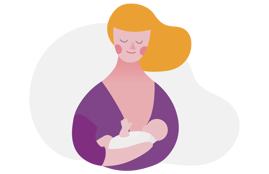 In the first six months babies get all the nutrients they need from breast milk or from first stage infant formula. There is no need to introduce any solid foods before this time. If you need support with breast or formula feeding look at our information in the
In the first six months babies get all the nutrients they need from breast milk or from first stage infant formula. There is no need to introduce any solid foods before this time. If you need support with breast or formula feeding look at our information in the 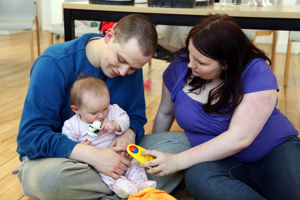 Your baby will be starting to reach for objects (like toys), grasping them and bringing them to their mouth. Make sure that anything small is out of reach to keep them safe. It helps at this stage to have a variety of objects and textures within reach of your baby. Play "What's in the bag?" to get them excited about different objects and toys. Find out more from CBeebies Parenting
Your baby will be starting to reach for objects (like toys), grasping them and bringing them to their mouth. Make sure that anything small is out of reach to keep them safe. It helps at this stage to have a variety of objects and textures within reach of your baby. Play "What's in the bag?" to get them excited about different objects and toys. Find out more from CBeebies Parenting 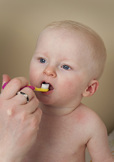
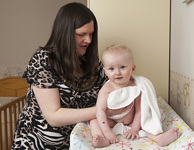 Interacting
Interacting 

